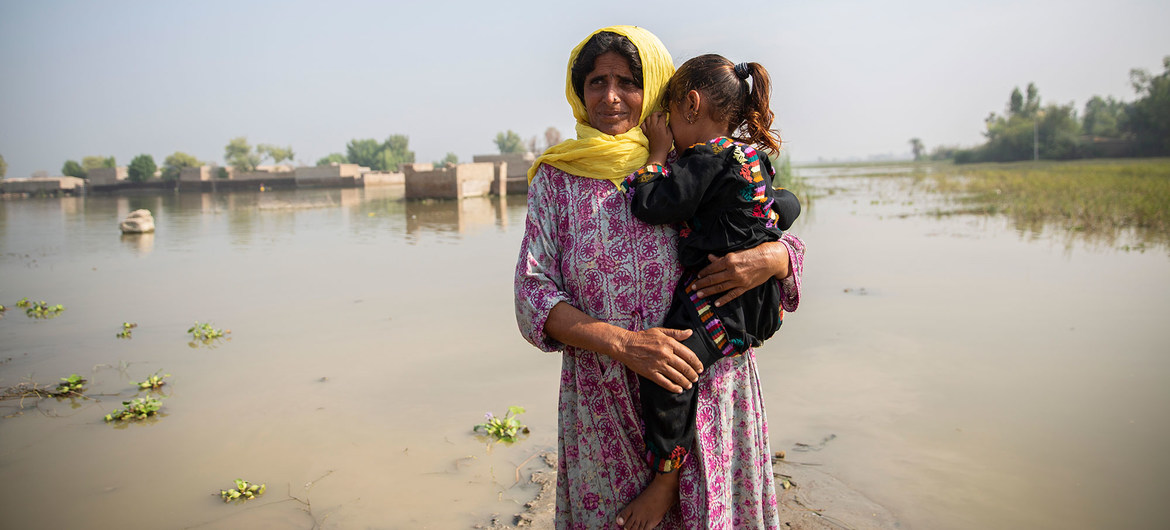Ahead of next week’s International Conference on Climate Resilient Pakistan in Geneva, the UN Development Programme (UNDP) has said that an additional nine million people are at risk of falling into poverty as a result of last summer’s devastating floods in Pakistan.
“We anticipate that the flood damage could push up to nine million people – additional people – into poverty,” said Knut Ostby, UNDP Resident Representative in Pakistan.
Although the flooding in Pakistan was “unprecedented,” Mr Ostby warned that it could happen in other countries affected by climate change, adding that crops had been lost as a result of the previous harvest and the missed planting season.
“Agricultural costs – food prices – are so rising and may double the number of individuals experiencing food insecurity, raising that number from seven to 14.6 million,” he said.
Read also: UN calls for global solidarity to help rebuild flood-ravaged Pakistan
Echoing the same worries, Pakistan’s Permanent Representative to the United Nations in Geneva, Khalil Hashmi, stated that eight million of the 33 million people affected by the catastrophe remain “acutely displaced,” since flood levels in some areas have yet to drain.
Housing, agriculture, and livelihoods are among the most pressing needs today, according to Ambassador Hashmi. “That’s the urgent aspect of it, and that’s the human side of it,” he insisted, ahead of Pakistan’s high-level summit in the Swiss city on Monday, which Pakistan Prime Minister Shehbaz Sharif and UN Secretary-General António Guterres are set to attend.
Concretely, the aim of the conference is to bring together public and private sector leaders and generate financial and international support for communities impacted by last year’s devastating floods in Pakistan and to rehabilitate and rebuild damaged infrastructure in a climate-resilient manner.
Long-term restoration and reconstruction in the country will require approximately $16 billion. “It’s not a one-year initiative,” said Syed Haider Shah, head of Pakistan’s Ministry of Foreign Affairs UN division, speaking by Zoom from Islamabad. “The needs have been further divided into four strategic recovery objectives: capacity-building for the government, inclusive reconstruction, gender concerns, and livelihoods.”
More than 1,700 people were murdered in the monsoon flooding tragedy, said UNDP’s Mr Ostby, who also stated that “13,000 or more kilometres of roads, 3,000 kilometres or more of railway tracks, 439 bridges, and 4.4 million acres of agricultural land” were destroyed or damaged.
This story was adapted from UN news.
